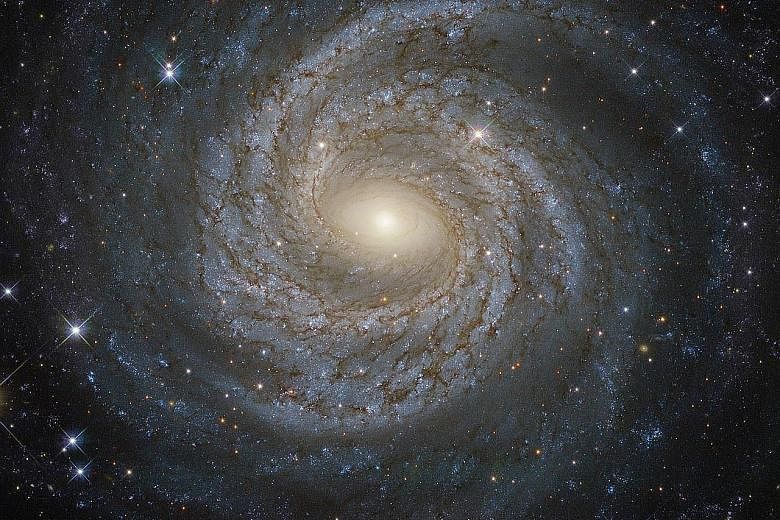CAPE CANAVERAL (Florida) • The universe is expanding faster than previously believed - a surprising discovery that could test part of Albert Einstein's theory of relativity, a pillar of cosmology that has withstood challenges for a century.
The discovery that the universe is expanding 5 per cent to 9 per cent faster than predicted, announced in joint news releases by Nasa and the European Space Agency, also stirs hypotheses about what fills the 95 per cent of the cosmos that emits no light and no radiation, according to scientists.
"Maybe the universe is tricking us," said Dr Alex Filippenko, an astronomer at the University of California, Berkeley who is a co- author of an upcoming paper about the discovery.
The rate of expansion does not match predictions based on measurements of the remnant radiation left over from the Big Bang explosion that gave rise to the known universe 13.8 billion years ago.
One possibility is that the universe has unknown subatomic particles, similar to neutrinos, travelling nearly as fast as the speed of light - about 300,000km per second.
Another idea is that so-called "dark energy", a mysterious, anti-gravity force discovered in 1998, could be shoving galaxies away from one another more powerfully than originally estimated.
"This could be an important clue to understanding those parts of the universe that make up 95 per cent of everything and that don't emit light, such as dark energy, dark matter and dark radiation," physicist and lead author Adam Riess, who is with the Space Telescope Science Institute in Baltimore, Maryland, said in a statement.
He shared the 2011 Nobel Prize in Physics for the discovery that the expansion of the universe was speeding up.
The latest news also raises the possibility that Einstein's general theory of relativity, which serves as the mathematical scaffolding for calculating how the basic building blocks of matter interact, is slightly wrong, Nasa said.
Dr Riess and his colleagues made their discovery by building a better cosmic yardstick to calculate distances. They used the Hubble Space Telescope to measure a particular type of star, known as Cepheid variables, in 19 galaxies beyond the Milky Way. How fast these stars pulse is directly related to how bright they are, which in turn can be used to calculate their distances. Similarly, a 100-watt light bulb appears dimmer the farther away it is.
The research will be published in an upcoming edition of The Astrophysical Journal.
Even though the new discovery is unlikely to affect humanity's near future, one researcher involved in the study said that the different scenarios could have serious repercussions for the universe.
"If the acceleration is not too fast, the universe will cool as it flies apart, resulting in a big freeze," said Dr Brad Tucker from the Australian National University Research School of Astronomy and Astrophysics.
"But if the universe can't keep up with its own acceleration, there will be a big rip. The universe will literally rip itself apart, which would be awesome," he said.
REUTERS, XINHUA

